Humanitarian & Compassionate (H&C) Considerations in Canadian Immigration
A&M Canadian Immigration Law Corporation
Humanitarian & Compassionate (H&C) Considerations in Canadian Immigration
Not everyone who wishes to stay in Canada fits neatly into the categories of economic immigration, family sponsorship, or refugee protection. For individuals who face exceptional hardship if required to leave, Canada provides a special mechanism called Humanitarian and Compassionate (H&C) considerations.
The H&C process allows people who may otherwise be ineligible for permanent residence to request an exemption from regular immigration rules. It is a discretionary pathway — meaning that immigration officers are not obligated to approve applications but must assess whether fairness, compassion, and the applicant’s unique circumstances justify granting permanent residence.
What Are H&C Considerations?
Under section 25(1) of the Immigration and Refugee Protection Act (IRPA), an officer may grant permanent residence (or allow an application to be processed from within Canada) if “humanitarian and compassionate considerations” warrant an exception.
Key factors assessed include:
- Best interests of any children affected (BIOC): This is always given primary consideration, as reinforced in Baker v. Canada (1999).
- Establishment in Canada: How long the applicant has lived, worked, studied, and integrated into Canadian society.
- Hardship upon return: Whether the applicant would face unusual, undeserved, or disproportionate hardship if forced to return to their home country.
- Family ties in Canada: Presence of close family who depend on the applicant.
- Adverse country conditions: Political instability, violence, lack of medical care, or discrimination in the home country.
Important: H&C applications are not meant for people who simply want to bypass the immigration system or choose Canada for better opportunities. They are for people with exceptional, compelling cases.
Who Can Apply for H&C?
- People without legal status in Canada who cannot qualify under regular streams.
- Failed refugee claimants (though limits apply if their claim was recently refused at the Refugee Board or Federal Court).
- Individuals facing removal from Canada who have strong establishment or compassionate grounds to remain.
- Foreign nationals applying from abroad (rare, but possible if hardship is compelling).
Restrictions:
- H&C cannot be used to apply for refugee protection.
- People who have an ongoing refugee claim cannot request H&C at the same time.
- Bars apply for those with a refused claim at the Refugee Appeal Division (RAD) or Federal Court within the last 12 months (except where children are involved or there are serious medical risks).
How to Apply
- Submit Form IMM 5283 (Application for Permanent Residence – H&C Grounds).
- Provide supporting documents, such as:
- Proof of establishment (work records, taxes, community involvement).
- Medical records (if health is a key factor).
- Letters of support from employers, community leaders, family.
- Country condition reports.
- Pay the processing fee (currently $570 + right of permanent residence fee if applicable).
- Application is reviewed by an IRCC officer who has broad discretion to weigh factors.
Processing & Outcomes
- H&C applications often take 24–36 months due to the detailed nature of assessments.
- If approved, the applicant can obtain permanent residence.
- If refused, there is no right of appeal to the Immigration Appeal Division (IAD). However, applicants may seek a Judicial Review in Federal Court.
Frequently Asked Questions
Yes. Many H&C applicants are people without status who are already established in Canada
Officers look at schooling, medical needs, emotional well-being, and the impact of uprooting children to another country. Courts have ruled (e.g., Baker v. Canada) that this factor must be given “substantial weight.”
Yes, but it is less common.
Strong proof of hardship is required.
Yes, but generally not within 12 months of refusal unless there are children involved or life-threatening medical issues.
You may file a Judicial Review at the Federal Court within 15 days (if in Canada) or 60 days (if outside Canada).
The Humanitarian and Compassionate (H&C) pathway is a vital safeguard in Canadian immigration law, ensuring fairness for people who fall outside standard immigration categories but whose circumstances demand compassion.
While it is not a guaranteed path — and decisions rest heavily on officer discretion — successful applicants often demonstrate strong ties to Canada, compelling personal hardship, and especially the best interests of their children.
H&C applications are complex and require careful preparation. For those facing removal or with uncertain immigration status, this program can be a last but powerful chance to remain in Canada permanently.






